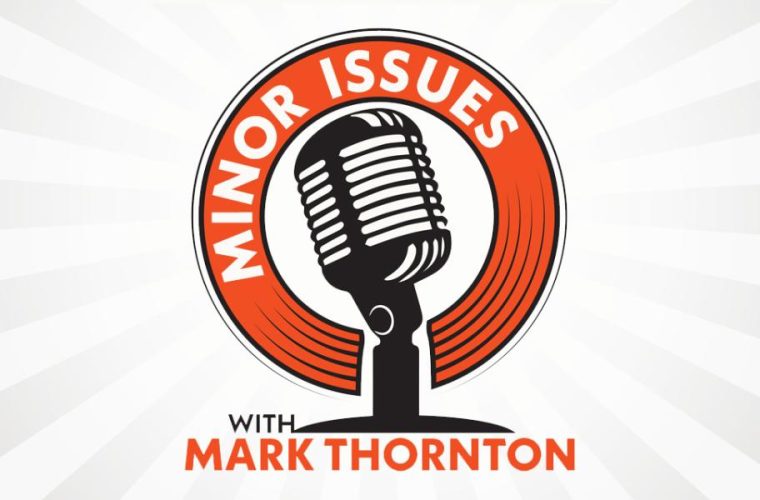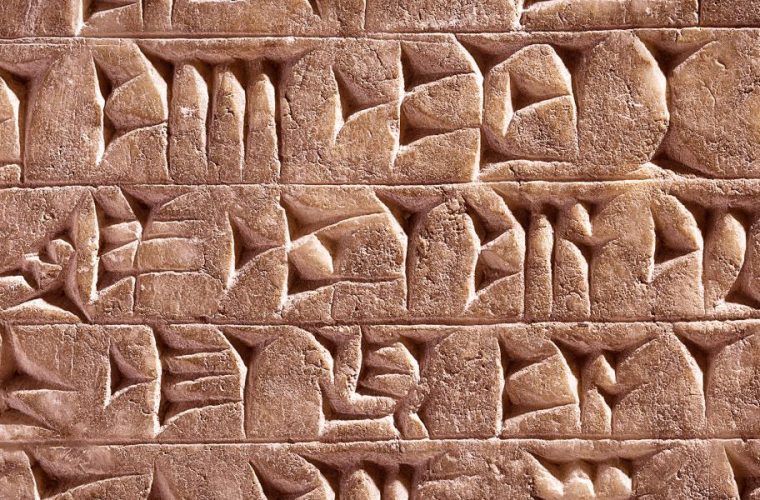
Does Nozick Think Government Prevents the Hobbesian State or Do Others Misunderstand Him?
Aeon J. Skoble is an outstanding political philosopher, and, to my mind even better, he has honored me by contributing an excellent essay, “Anarchy, Nozick, and Gordon,” to my festschrift, Defending Liberty. In his essay, Skoble responds to my 2009 objection to his discussion of Robert Nozick’s minimal statism in Deleting the State (2008). He is kind enough to say that my objection led him to rethink Nozick’s argument for the minimal state, but Skoble concludes that the basic point of his objection is right. In what follows, I’ll try to respond to what he says.
First, though, a clarification. Skoble opposes the minimal state and argues that Nozick’s defense of the minimal state fails. Skoble says that “Gordon’s sympathies appear to fall on the side of polycentricity, though we’ve never actually had a chance to discuss this aspect of [what leads to the most stable social order]” (p. 197; by “polycentricity,” Skoble means a system of competing protective agencies). I agree with him entirely that Nozick’s defense of the minimal state fails and also concur with the arguments for anarchism given in Deleting the State. Our dispute concerns only the nature of Nozick’s argument.
As Skoble sees it, Nozick falls into a common pattern of libertarian opponents of anarchism. These opponents acknowledge that the state, even a minimal state, violates rights; but, they say, an anarchist society won’t work. It will lead to social chaos, so, to our regret, we must put up with the state. Without a state, we would find ourselves in a Hobbesian jungle, where life is “nasty, brutish, and short.” Skoble says, “I was attempting to argue that Nozick can only make this move if he’s tacitly appealing to a kind of Hobbesian worry that if the dominant protective agency has competition, it would produce a decline in social order as they found themselves in conflict” (p. 190; as we’ll see, the reference of “this move”—i.e., the restrictions that Nozick thinks the dominant agency can impose on competing agencies—is a matter of dispute between us).
Skoble is insightful in suggesting that minimal statists fear that anarchism will lead to chaos, and I would extend his point by adding that anarchists also sometimes ask themselves, “Will anarchism really work? Will it degenerate into a battle of competing protective agencies or a seizure of power by an ‘outlaw’ agency?” Skoble is also wise to specify that he has in mind a tacit appeal by Nozick to the “Hobbesian worry.” This blocks the response “Nozick doesn’t say this.” Skoble can answer that he acknowledges this but Nozick’s argument doesn’t make sense without the implicit “Hobbesian worry.” It is the “best explanation” of his argument.
Skoble’s essay has led me to think over what I wrote so many years ago, and I now see matters differently. There is a much simpler point that I did not mention then that shows what is wrong with Skoble’s understanding of Nozick’s argument. In part 1 of Anarchy, State, and Utopia, Nozick assumes as a starting point that anarchy works. His “state of nature” is a condition in which most people, including those who have established protective agencies, respect rights. He says,
More to the point, especially for deciding what goals one should try to achieve, would be to focus upon a nonstate situation in which people generally satisfy moral constraints and generally act as they ought. Such an assumption is not wildly optimistic; it does not assume that all people act exactly as they should. Yet this state-of-nature situation is the best anarchic situation one reasonably could hope for. (p. 5)
Moreover, Nozick explicitly rejects a Hobbesian starting point:
Given the enormous importance of the choice between the state and anarchy, caution might suggest one use the “minimax” criterion and focus upon a pessimistic estimate of the nonstate situation: the state would be compared with the most pessimistically described Hobbesian state of nature. But in using the minimax criterion, this Hobbesian situation should be compared with the most pessimistically described possible state, including future ones. Such a comparison, surely, the worst state of nature would win. (p. 5)
Thus, not only does Nozick reject the Hobbesian starting point, but he agrees with Skoble that taking it into account might very well lead to the rejection of the state, since a bad state would be worse than the Hobbesian state of nature. Skoble says,
No social order, stateless or otherwise, can guarantee that there will be no ill-tempered individuals who prefer violence. The question is, which sort of social order offers the most stable institutions with the least propensity for corruption and the greater incentives for peaceful cooperation. For all the reasons Nozick thinks this points towards the minimal state, it points towards the polycentric legal order envisioned by individualist anarchists. (p. 197)
I would suggest that Nozick isn’t offering a comparative stability argument for the state and that, though he would word it differently, he would have no reason to reject the thrust of Skoble’s argument.
But, if I am right that Nozick isn’t concerned with the Hobbesian fear of social chaos, doesn’t this leave his argument for the minimal state without any firm basis? Skoble thinks so.
If Nozick has no argument for the state beyond that one could conceivably arise without violating anyone’s rights, merely a logical possibility as opposed to an inevitability, then that means he thinks that no competitive set of such agencies could be fair and feasible; that is, he rejects polycentrism because of a Hobbesian fear of social chaos. (p. 192, emphasis in original)
Skoble has overlooked another alternative: Nozick thinks the clients of the dominant agency would prefer a minimal state to its absence, and he also thinks the dominant agency violates no one’s rights in creating a minimal state.
If this is what Nozick is getting at, though, Skoble would respond to me, Isn’t Nozick mistaken? Skoble says that the minimal state does violate rights. It compels those who would prefer to form other agencies to join it and then forces them to pay taxes to support its activities. Further, the assertion that the state doesn’t violate the rights of other protective agencies because it compensates them for putting them out of business is ludicrous. One isn’t acquitted of charges of violating rights because one offers compensation for doing so.
Here I confess to a fundamental difference from Skoble about the way to interpret Nozick, who expressly denies that he is arguing that the dominant agency can ban other agencies or compel anyone to join it. The dominant agency can, though, prohibit anyone from imposing risky decision procedures on its clients, and for this it must compensate independents whose position is worsened by this limit on the decision procedures that can be applied. (By “decision procedures,” Nozick means an agency’s methods for determining whether someone accused of a rights violation is guilty. Within limits, he thinks that agencies can legitimately have different opinions on which procedures are too risky and that in cases of conflict, each agency can try to prevent other agencies from imposing procedures it deems risky. The dominant agency, however, will win such conflicts, so its opinion will prevail.) Skoble is right that in most circumstances, offering compensation does not excuse a rights violation, but Nozick maintains that where risky decision procedures are concerned, a special sort of fear arises among agency clients because of the chance that other agencies will apply risky decision procedures to them if they are charged with a rights violation. If the dominant agency prohibits these risky procedures, Nozick claims, it doesn’t violate the rights of independents who can no longer apply these procedures, so long as it compensates them.
Skoble says,
I do see that much hangs on the modality of whether the dominant agency would act a certain way as opposed to might act a certain way. But Nozick certainly seems to be saying that it would have to prohibit [the existence of competing agencies]. . . . If the dominant protective agency says to a potential competitor “we will forcibly prevent you from starting a new rival firm, but will compensate you to make up for it,” the would-be rival’s rights have in fact been violated. . . . Why would the dominant protective agency feel it necessary to say something like this? . . . [I]t would have to be the idea that allowing the rival firm to operate reduces the security of everyone. That would make it a necessity to prohibit, and that is indeed the fear of social chaos. (p. 193)
It is because he thinks that Nozick has in mind averting social chaos that Skoble claims that the logic of Nozick’s argument requires him to endorse the dominant agency’s prohibition of other agencies and its taxation of everyone who has been forced to become its client: Nozick fears the insecurity of social chaos, and the dominant agency must act in these ways to prevent it. If, though, one takes Nozick to be arguing, as I do, that a dominant agency’s prohibition of risky decision procedures can enhance the security of a nonchaotic starting point (Nozick’s state of nature) for its own clients its, one need not evoke the fear of social chaos. One can take Nozick’s argument to mean what he says it does. None of this of course, is to say that Nozick’s argument is right; the question is only what that argument is.
After reading Skoble’s response, I have a much better idea than before of how he looks at Nozick’s argument, and I hope that he will forgive me for remaining unconvinced by his interpretation. Everyone interested in Nozick’s argument ought to read Skoble’s well-argued essay, and I am most grateful to him for his contribution.



